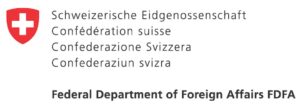The article examines the case of Japan’s peacebuilding in South Sudan from 2011 to 2017 and asks how Japan’s shift towards a more proactive defence posture affects the place of human security in its foreign policy agenda. Using the framework of neoclassical realism, the article argues that human security remains a critical element of Japanese foreign policy despite changes in its strategic orientation because, international predicaments notwithstanding, Japan’s foreign policy decision making is still significantly constrained by domestic variables such as state–society relations, elite perceptions, elite consensus, and domestic institutional arrangements. Changes in Japan’s overall foreign and security policies do not diminish the importance of human security. Despite the shift to a more assertive foreign policy, Japan still retains the essential features of its diplomacy. External variables influence policymakers’ decision making, but domestic variables constrain policy choices and outcomes.






